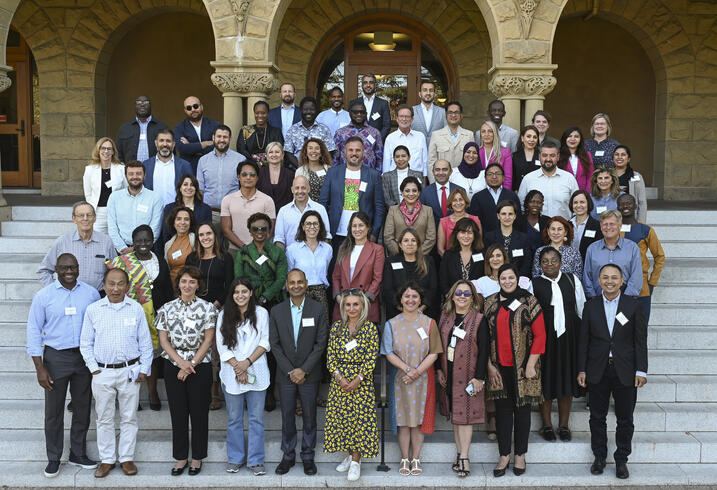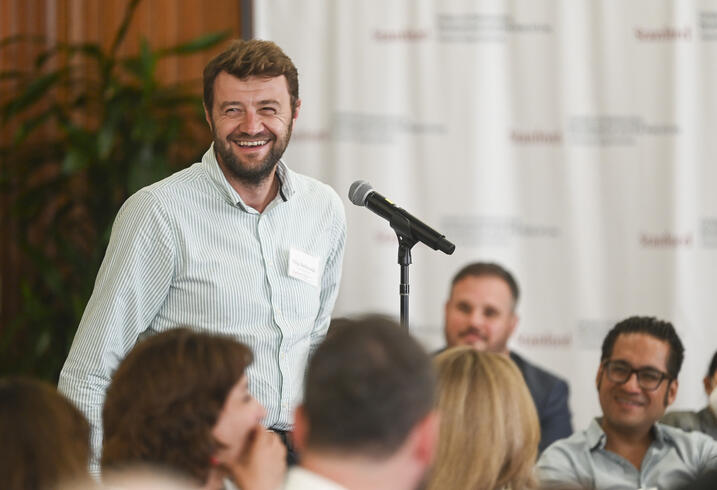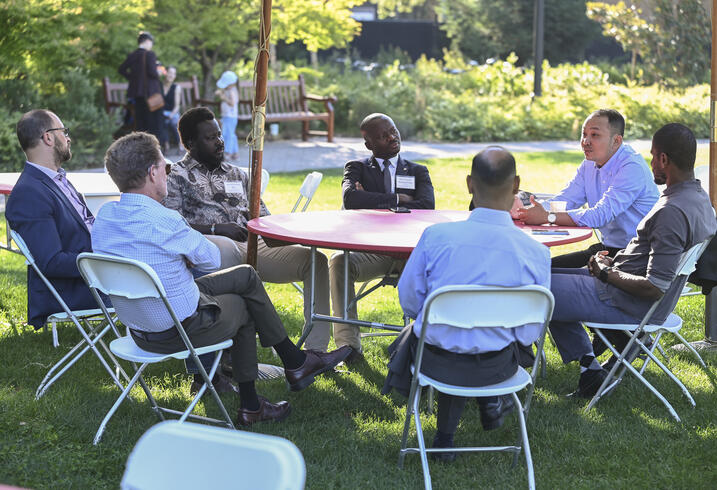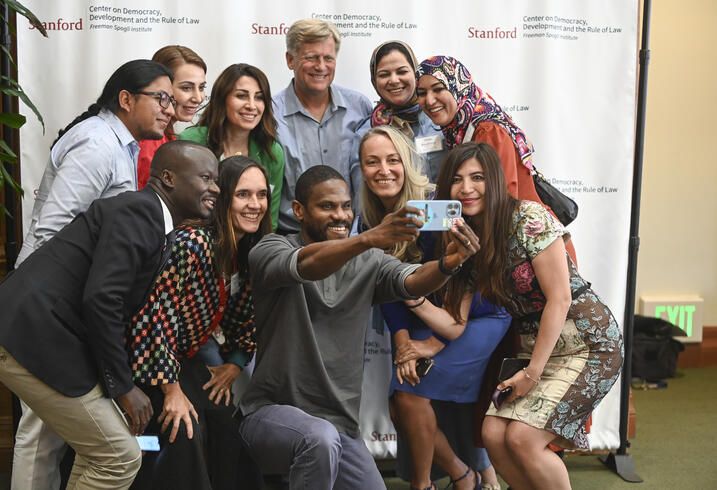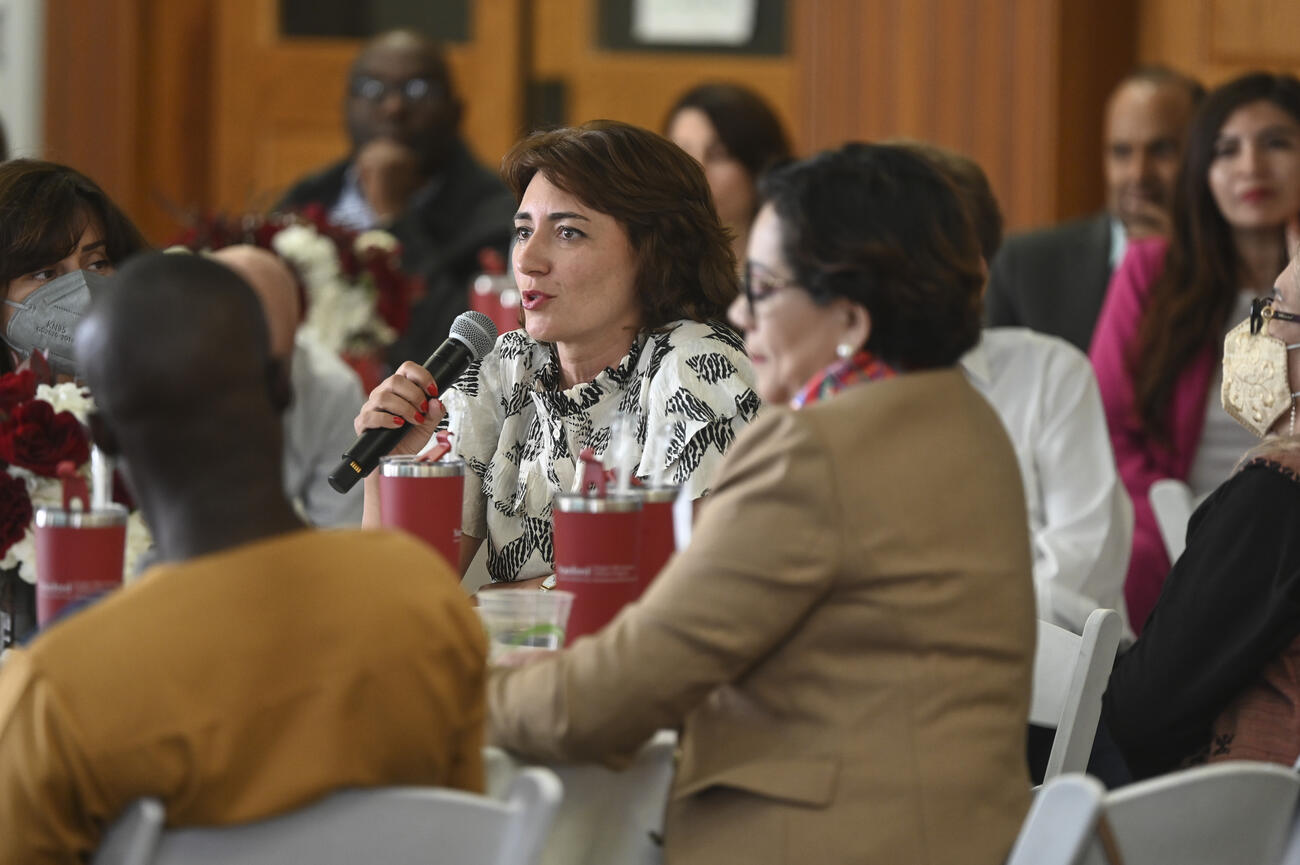To mark the eleven-year anniversary of the Arab Uprisings, The George Washington University’s Institute for Middle East Studies (IMES) and Stanford University’s Program on Arab Reform and Democracy (ARD) invite you to a series of panels examining major findings from the edited volume Struggles for Political Change in the Arab World: Regimes, Oppositions, and External Actors after the Spring, edited by Lisa Blaydes, Amr Hamzawy, and Hesham Sallam and published by the University of Michigan Press (2022).
About the Volume:
The advent of the Arab Spring in late 2010 was a hopeful moment for partisans of progressive change throughout the Arab world. Authoritarian leaders who had long stood in the way of meaningful political reform in the countries of the region were either ousted or faced the possibility of political if not physical demise. The downfall of long-standing dictators as they faced off with strong-willed protesters was a clear sign that democratic change was within reach. Throughout the last ten years, however, the Arab world has witnessed authoritarian regimes regaining resilience, pro-democracy movements losing momentum, and struggles between the first and the latter involving regional and international powers.
This volume explains how relevant political players in Arab countries among regimes, opposition movements, and external actors have adapted ten years after the onset of the Arab Spring. It includes contributions on Egypt, Morocco, Kuwait, Saudi Arabia, Syria, Algeria, Sudan, Lebanon, Iraq, Jordan, Yemen, and Tunisia. It also features studies on the respective roles of the United States, China, Iran, and Turkey vis-à-vis questions of political change and stability in the Arab region, and includes a study analyzing the role of Saudi Arabia and its allies in subverting revolutionary movements in other countries.
Schedule
8:00-8:30 am: Coffee and light breakfast
8:30-9:00 am: Opening Remarks
Mona Atia, IMES, The George Washington University
Larry Diamond, CDDRL, Stanford University
Hicham Alaoui, Hicham Alaoui Foundation
9:00-10:45 am Panel I: Authoritarian Survival Strategies after the Arab Uprisings
Michael Herb, “The Decay of Family Rule in Saudi Arabia”
Farah Al-Nakib, “Kuwait’s Changing Landscape: Palace Projects and the Decline of Rule by Consensus”
Samia Errazzouki, “The People vs. the Palace: Power and Politics in Morocco since 2011”
Moderator: Hesham Sallam, CDDRL, Stanford University
10:45-11:00 am: Coffee break
11:00 am -1:00 pm Panel II: Opposition Mobilization and Challenges to Democratization
Khalid Medani, “The Prospects and Challenges of Democratization in Sudan”
Sean Yom, “Mobilization without Movement: Opposition and Youth Activism in Jordan”
Lina Khatib, “Cycles of Contention in Lebanon”
David Patel, “The Nexus of Patronage, Petrol, and Population in Iraq”
Moderator: Ayca Alemdaroglu, CDDRL, Stanford University
1:00-2:00 pm: Lunch
2:00-3:45 pm Panel III: External Actors and Responses to Popular Mobilization
Sarah Yerkes, U.S. Influence on Arab Regimes: From Reluctant Democracy Supporter to Authoritarian Enabler”
Ayca Alemdaroglu, “Myths of Expansion: Turkey’s Changing Policy in the Arab World”
Moderator: Nathan Brown, The George Washington University
SPEAKER BIOS
Hicham Alaoui is the founder and director of the Hicham Alaoui Foundation and a scholar on the comparative politics of democratization and religion, with a focus on the MENA region.
Ayça Alemdaroğlu is a Research Scholar and Associate Director of the Program on Turkey at the Freeman Spogli Institute at Stanford University.
Mona Atia is Associate Professor of Geography and International Affairs at the George Washington University.
Nathan Brown is Professor of Political Science and International Affairs
Larry Diamond is a Senior Fellow at Stanford University’s Hoover Institution and the Freeman Spogli Institute for International Studies, where he serves as director of the Program on Arab Reform and Democracy.
Samia Errazzouki is a PhD candidate in history at the University of California Davis and a former Morocco-based journalist.
Michael Herb is Professor of Political Science at Georgia State University.
Farah Al-Nakib is Associate Professor of History at the California Polytechnic State University.
Lina Khatib is the Director of the Middle East and North Africa Programme at Chatham House.
Khalid Mustafa Medani is Associate Professor of Political Science and Islamic Studies at McGill University.
David Siddhartha Patel is a Senior Fellow and Associate Director for Research at the Crown Center for Middle East Studies at Brandeis University.
Hesham Sallam is a Research Scholar at Stanford University’s Center on Democracy, Development, and the Rule of Law.
Sarah Yerkes is a Senior Fellow at the Carnegie Endowment for International Peace.
Sean Yom is Associate Professor of Political Science at Temple University, Senior Fellow at the Foreign Policy Research Institute, and Board Member of the Hicham Alaoui Foundation.











